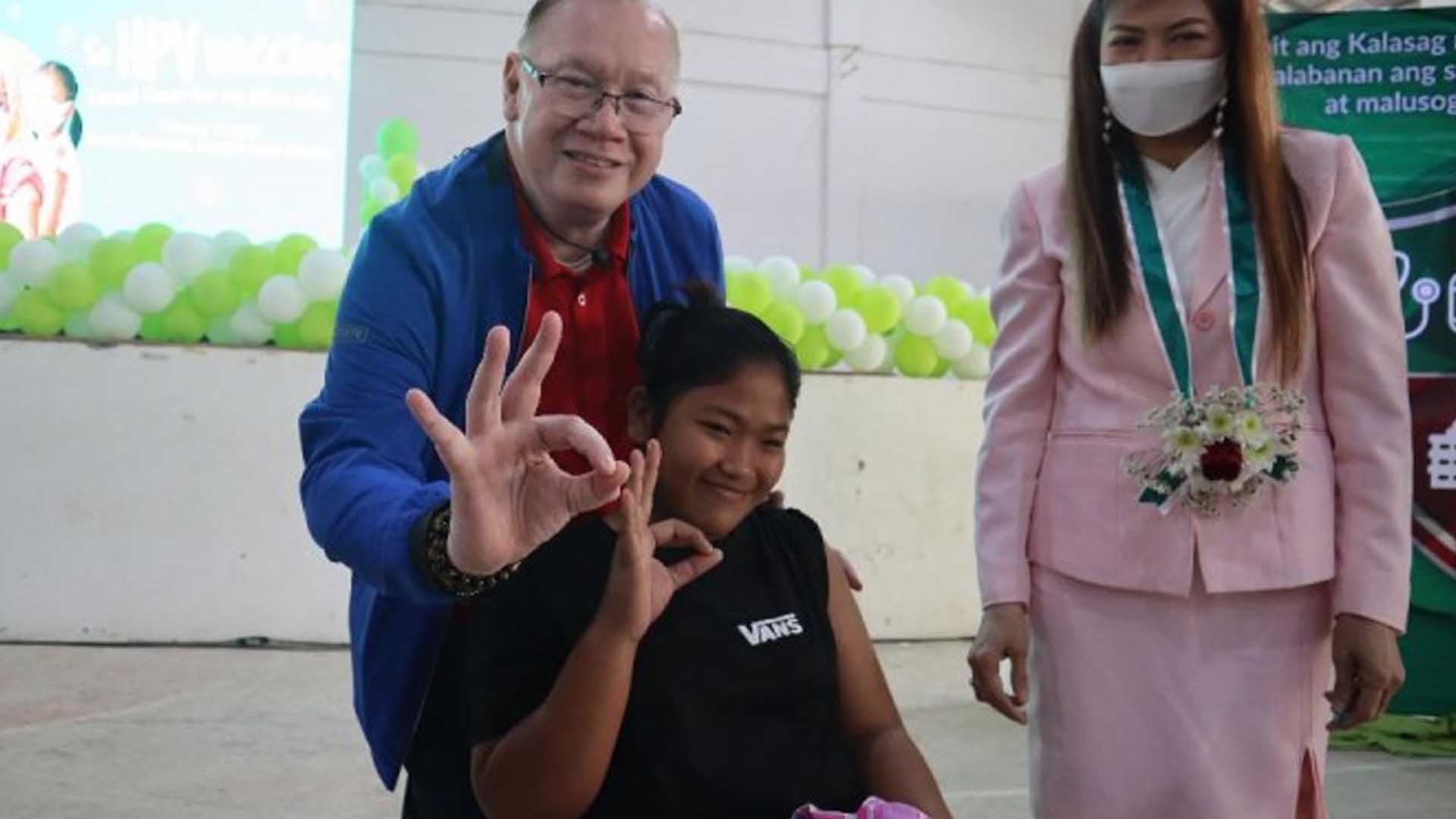The Department of Health (DOH) and other stakeholders on Friday launched a school-based vaccination and information campaign against Human Papilloma Virus (HPV) infection to protect learners from cervical cancer.
Led by DOH Undersecretary Enrique “Eric” Tayag, the program titled “Sa HPV vaccine, cervical cancer-free ang future natin!” was held at the Mamba Gym, Cagayan National High School (CNHS) and was attended by about 700 participants.
The program saw the vaccination of 150 CNHS students with HPV vaccines.
“The school-based immunization program would protect learners against Human Papilloma Virus infection,” Tayag said. “Cervical cancer is still the second most common cancer affecting women, with an estimated 7,277 new cases and 3,807 deaths due to cervical cancer expected yearly in the country.”
He said almost 99 percent of cervical cancer cases have been linked to infection with high-risk HPV, a common virus primarily transmitted through sexual contact.
While 90 percent of HPV infections have no symptoms and clear up eventually, persistent HPV infections can cause cervical cancer in women.
In the Philippines, fewer than one in 10 girls targeted for HPV immunization have received their complete HPV vaccination doses, according to the World Health Organization.
By driving concerted action across the pillars of HPV immunization, screening, and treatment, the Philippines could eliminate cervical cancer by 2064.
“While these statistics are alarming, there is still hope: cervical cancer is also one of the most vaccine-preventable diseases in the world. And if the world aims to eliminate cervical cancer by 2030, all countries must work together to fully vaccinate 90 percent of girls against HPV before age 15. Enforcing school-based immunization programs will help countries meet this global goal,” Tayag said.
He said students must learn more about HPV and how to prevent HPV infection through vaccination and should ask their school nurses and other assigned focal persons about the DOH’s school-based HPV immunization program.
“Together, let us amplify the value of immunization as a basic right of every child and how this vital early health care intervention can propel them toward a healthier and brighter future,” he added.
With the program, a learner will receive the vaccine twice, this February and in September for the 150 initial vaccinated students.
For Academic Year 2022-2023, the health department has secured 1.2 million doses of HPV vaccines, which will benefit 600,000 students nationwide.
For Cagayan Valley alone, the DOH has procured 50,000 doses of HPV vaccines, which will immunize 25,000 students in the region.
‘Health shield’
Representatives of various stakeholder groups also pledged their continued support to public health through the “Kalasag ng Kalusugan” commitment exercise.
“Kalasag ng Kalusugan,” which translates to “health shield,” reflects the collective commitment of the local and national governments to strengthen the public’s health shield through immunization.
In the multi-stakeholder collaboration with the Department of Education (DepEd), global health care MSD-Philippines, the city government of Tuguegarao, and the provincial government of Cagayan, Education City Superintendent Reynante Caliguiran said the event aligns with DepEd Memorandum 173 or the “Inclusion of the Human Papilloma Virus Vaccination in School-Based Immunization Program (SBIP).”
The SBIP is an intervention to protect school-aged children against vaccine-preventable diseases.
“With the return to face-to-face classes nationwide, it is both timely and prudent to reinstate the school-based HPV vaccination program to safeguard students from HPV infection and reduce their risks for cervical cancer and other diseases caused by HPV,” Caliguiran said.
Meanwhile, Mayor Maila Ting-Que said the city government would regularly promote immunization in villages and schools in support of the health department’s program, aside from setting aside funds to augment the national government in its vaccination drive. (PNA)







